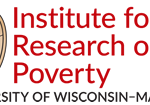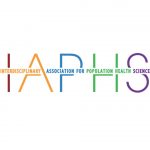D4 hack week (Disasters, Demography, Disparities and Decisions) (Due 4/15/24)
|
The AI2ES and CSDE invite you to the 2024 D4 Hack Week: Disasters, Demography, Disparities and Decisions to be hosted in-person, with a remote participation option, at the University of Washington (Seattle campus), in September, 2024. This is a hands-on workshop intended to integrate environmental, demographic, health, and other societal impacts data and develop innovative new approaches and tools for analysis. We will provide funding support, including travel, lodging, and related expenses. Space will be limited.
(read more)
|
 |
Grant Writing Summer Program (GWSP) (Due 5/10/24)
|
Applications are now open for this program, which assists scholars in preparing applications to the National Institutes of Health (NIH). More info here, and application page here. Past participants report great success, and lots of support and even fun along the way. Applying to the GWSP is open to CSDE affiliates (UW and external) as well as to local post-docs writing K awards with one or more CSDE affiliates on their mentoring team. If accepted, the program is free for applicants in these groups. Other researchers in the Seattle area are also eligible to apply and may be accepted if space is available. The program fee is $7,500 for these applicants. (Current graduate students are not eligible to apply, sorry). Applications are due May 10th.
(read more)
|
 |
*New* Issue of Population and Environment
Read Volume 46, Issue 1 here!
(read more)
*New* Issue of Biodemography and Social Biology
Check out the latest issue, volume 69, issue 1, here!
(read more)
*New* Issue of Journal of Ethnic and Migration Studies
Read the latest issue here, volume 50, issue 8!
(read more)
*New* Deadline Extended: PAR-22-233 (Time-Sensitive Opportunities for Health Research)
|
The NIH announced that the deadline for the funding opportunity, Time-Sensitive Opportunities for Health Research (PAR-22-233), has been extended for an additional year. Please note that the OBSSR contact has changed to Rosalind King, PhD, Chief, Scientific Development and Coordination Section. This funding opportunity aims to expedite the review and award process to support research focused on understanding health outcomes related to unexpected or time-sensitive events, such as emergent environmental threats and pandemics or changes in local, state, or national policies, as well as natural disasters. Applications will be accepted on a rolling basis until March 2, 2025.
(read more)
|
 |
*New* Call for Applications: Summer Workshop On The Panel Study of Income Dynamics (PSID) (Due 4/15/24)
|
The Panel Study of Income Dynamics (PSID), begun in 1968, is the world’s longest-running multigenerational household panel study. This five-day, in-person only, workshop will orient participants to the content and structure of the core PSID interview, its special topics modules, and its supplemental studies, including the Child Development Supplement (CDS), the Transition into Adulthood Supplement (TAS), and new COVID-19 modules. They will also discuss topics including the recently-released genomics data collected from children and primary caregivers in CDS as well as new data files which explain family relationships and demographic characteristics over time. Learn more here. Apply by April 15th with a CV and cover letter.
(read more)
|
 |
*New* Call for Papers: Demystifying Machine Learning for Population Researchers (Due 4/30/24)
|
This workshop on November 5 to 6, 2024 at the Max Planck Intsitute for Demographic Research (MPIDR) in Rostock, Germany, clarifies the goals, techniques, and applications of machine learning methods for population research. The main focus of this workshop is on ML techniques using quantitative population data and research questions, not on ML language models. The workshop consists of keynotes, contributed sessions, and a tutorial. Learn more here and apply by April 30th.
(read more)
|
 |
*New* Call for Applications: 2024–2025 Professional Development Training Series On Poverty And Economic Mobility Research (Due 4/30/24)
|
As the National Research Center on Poverty and Economic Mobility, the Institute for Research on Poverty (IRP) at the University of Wisconsin–Madison invites applications from continuing Ph.D. and master’s degree students who are from groups that are underrepresented in academia for its 2024–2025 Professional Development Training Series on Poverty and Economic Mobility Research. IRP is offering this virtual quarterly training series from fall 2024 through spring 2025 to 10 students. The training is virtual and will take place from Fall 2024 to Spring 2025.
(read more)
|
 |
*New* Call for Papers: British Society for Population Studies Annual Conference (Due 4/30/24)
|
You are invited to submit proposals for presentations and posters for the British Society for Population Studies’ 51st Conference, to take place at the University of Bath, 9-11 September 2024. The conference promises rich opportunities to share knowledge and meet fellow demographers working in university, government and other practical settings, as well as space for early-career researchers to develop networks in the field. Submissions are due by April 30th.
(read more)
|
 |
*New* Funding Grants from the Nathan Cummings Foundation (4/30/2024)
|
The Nathan Cummings Foundation (NCF) has an open call for funding proposals, or Letters of Inquiry (LOIs), from January 16, 2024 through April 30, 2024. They are offering two types of funding opportunities: grants and program-related investments (PRIs). Both grant and PRI proposals must align with NCF’s interconnected goals of racial justice, economic justice, and/or environmental justice. Awards are for $250,000 and applications will be reviewed on a rolling basis until April 30th. All applicants will be notified about the status of their application within eight weeks of submission.
(read more)
|
 |
*New* Two Funding Opportunities from the Center for Retirement Research at Boston College (4/30/24)
|
The Center for Retirement Research at Boston College announced two funding opportunities to study retirement and disability policy. The first is a Dissertation Fellowship Program, which will award one doctoral candidate with a fellowship of $28,000. The second is Sandell Grant Program, which will award one junior or non-tenured scholar with a one-year grant of $50,000. The deadline for both programs is April 30th, 2024.
(read more)
|
 |
*New* Evans Seminar with James M. Thomas (5/1/24)
The Evans School invites you a seminar with Dr. James M. Thomas (Department of Sociology, University of Mississippi) on Wednesday, May 1st from 11:30-12:30 PM in 360 PAR. Dr. Thomas’s research has been driven by questions within two interrelated fields of inquiry: histories of race and racism, and contemporary practices of race and racism. He employs a variety of interpretive methods to illuminate how meanings of race and racism arise within certain socio-cultural contexts, and how social actors reproduce and contest those meanings in everyday practices and encounters. Dr. Thomas has examined how institutions of higher learning implement diversity initiatives and where these efforts fall short.
(read more)
*New* Submit Your Proposal for 2024 IAPHS Pre-Conference Workshops (Due 5/3/24)
|
Submissions for the 2024 IAPHS (Interdisciplinary Association for Population Health Science) Pre-Conference Workshops to be held on September 10, 2024 are now open! Workshops are often led by diverse interdisciplinary scholars and should seek to engage audiences in important population health topics using a focused skill-oriented interactive experience. Workshops will be 2 hour or 4-hour time blocks. Prior workshops have addressed topics such as advancing health equity methods, network policy mapping, and best practices for communicating race/ethnicity in public health.
(read more)
|
 |
*New* Labor Studies Scholarships Now Open (Due 5/6/24)
|
Each year, the Harry Bridges Center for Labor Studies awards over $50,000 in scholarships and fellowships to students at UW. The awards are available to students at multiple stages of education and experience, from incoming freshman to senior graduate students. Individual award amounts range from $1,000 to $10,000. Students at any of the three University of Washington campuses are eligible to apply. The deadline to apply for scholarships is Monday, May 6th.
(read more)
|
 |
Spring Schedule for CSDE Workshops and Working Groups
|
In spring quarter, CSDE will be hosting a workshop series and several working groups. Students, faculty, and staff are all welcome to register and we welcome registrants from outside the University of Washington for our remote workshops as well.
Please reach out to CSDE’s Training Director, Jessica Godwin (jlg0003@uw.edu), if you have additional workshops you would like to see offered in the future and we will do our best to accommodate those requests. View the schedule as a pdf here.
Spring Workshop Series
CSDE Working Groups
- Computational Demography Working Group
- Biomarker Working Group
- Date: 1st Thursdaysof each month (4/4, 5/2, 6/6) @ 12:30PM-1:30PM
- Location: Raitt 223
- Contact: Tiffany Pan (tpan@uw.edu)
- Migration & Settlements Working Group
- Date: Every other Friday @ 9:00AM starting March 29th
- Location: Raitt 114/Zoom (meeting link)
- Contact: Aryaa Rajouria (rajouria@uw.edu)
(read more)
|
 |
Many CSDE-Relevant Grant Opportunities at NICHD!
|
The NICHD has listed many grant opportunities that should be of interest to CSDE affiliates. Check out the list here. If you are interested, CSDE can help you with providing ‘eyes’ for feedback on the narrative, contacting a program officer, more formalized mock review panel of experts to provide feedback on a penultimate draft, a summer grant writing program, or scientific methods consultations. We’re happy to support your science! Just ask!
(read more)
|
 |
CSDE Population Research Planning Grants (PRPGs) (Rolling deadline)
|
Population Research Planning Grants (PRPGs) are designed to provide in-kind support and/or funds of up to $25k* to support a wide array of activity types throughout the development of a research project. As part of our mission to complement rather than duplicate other campus opportunities such as the Population Health Initiative seed grants, we will consider funding a variety of activities. See a list of example activities in the full story!
(read more)
|
 |
CSDE Matching Support to Supplement On-campus Funding (Rolling deadline)
|
CSDE Matching Support includes in-kind or monetary support to accompany a submission to other on-campus funding mechanism, such as PHI, EarthLab, or Urban@UW. All projects must have a CSDE affiliate who is UW faculty and is listed as a PI or co-PI, with any number of other collaborators. Note that we require (PRPGs) or strongly suggest (matching funds) contacting either Development Core Director (Steven Goodreau) or CSDE Director (Sara Curran) to discuss possibilities for your specific proposal before submission.
(read more)
|
 |
|

